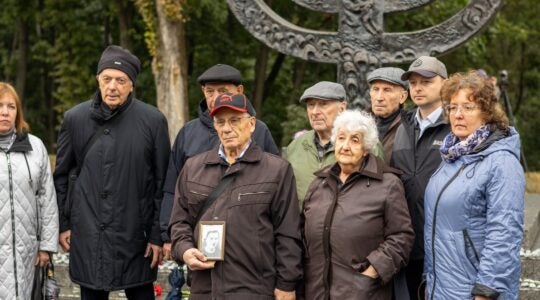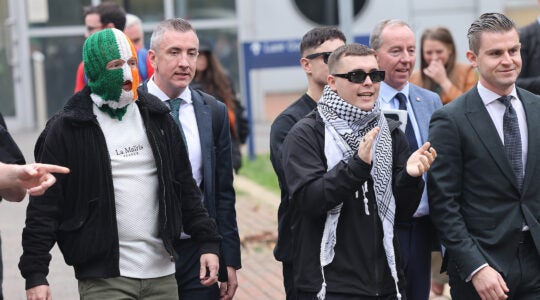BUDAPEST, Hungary (JTA) — A representative of Hungarian Jewry criticized the organizers of a rabbinical conference in Budapest for not postponing the forum with national elections nearing.
Andras Heisler, president of the Mazsihisz Federation of Jewish Communities in Hungary, leveled his criticism in a statement sent Monday, the opening day of the two-day biannual convention of the Rabbinical Centre of Europe.
“Mazsihisz is looking with concern at the rabbinical conference, which is planned at the peak point of an elections campaign,” Heisler wrote, referencing the April 6 election.
Mazsihisz is embroiled in a dispute over Holocaust commemoration issues with the government of Prime Minister Viktor Orban, whose center-right Fidesz party is expected to be reelected easily, according to recent polls.
Mazsihisz boycotted government-led plans to unveil on the 70th anniversary of the Nazi invasion into Hungary a statue that depicts Hungary as an innocent victim on Nazism because the federation said it obfuscated the nation’s Holocaust-era complicity. The monument, described as a tribute to all victims of Nazism, makes no mention of the Hungarian government’s complicity in the murder of 586,000 Jews during the Holocaust.
The rabbinical conference featured a memorial ceremony on Monday on the banks of the Danube River. Hungarian Defense Minister Csaba Hende and Budapest Mayor Istvan Tarlos, both of the Fidesz party, were among the 1,000 participants but did not speak.
Rabbi Shlomo Koves, a co-organizer of the rabbinical conference, told JTA he believes any concerns that the conference will be used in the campaign is unfounded, since “the event is not aligned with any party and is meant to celebrate Jewish life in Hungary and show solidarity with the local Jewish community.” He also said he supported Mazshihisz’s criticism of the monument, which Koves called “misleading and very problematic.”
The organizers took journalists to meetings with government officials as well as key opposition figures, including Viktor Szigetari of the newly formed Together opposition party. Szigetari accused Fidesz of “mainstreaming radical anti-Semitism notions with projects like the monument.”
But a Mazsihisz spokesman told JTA the organization feared the rabbinical conference, which includes many rabbis from the Chabad movement, would be used by the government as election propaganda to downplay the dispute with Mazsihisz, and that it would also serve the propaganda machine of the xenophobic Jobbik party, whose rhetoric often features negative references to so-called Jewish interests in Hungary.
“Our concerns are connected to inconsistent information and news coming up in the media concerning the rabbinical conference’s goal,” Heisler said in his statement. “We asked organizers to postpone until after the elections but they refused.”
JTA has documented Jewish history in real-time for over a century. Keep our journalism strong by joining us in supporting independent, award-winning reporting.





